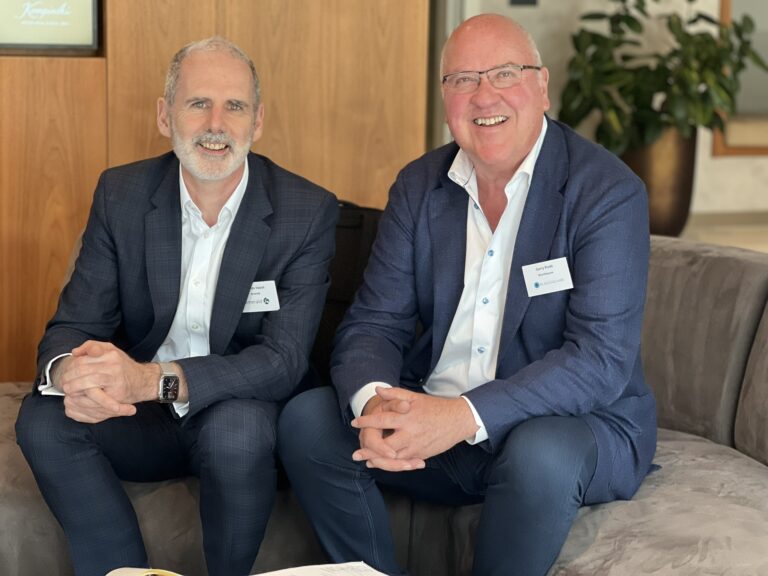Words of Wisdom from Emerald’s Advisory Council – Gerry Protti
In this interview, Charles Vaslet and Gerry Protti discuss the hurdles that Europe and Canada are currently facing to achieve the scale and speed that is necessary to hit net zero targets and achieve the energy transition. They outline why the IRA in the US has been so successful, and what lessons they are taking away that can make a difference in their own backyards.

Charles: Europe is struggling to compete with the inward investment related to the energy transition. How’s Canada doing?
Gerry: There are some very positive things happening, but I think Canada is struggling as well. It’s very difficult currently to attract significant amounts of domestic and foreign investment. Unfortunately, the country has developed a bit of a reputation for not being able to get projects built and done. That’s the biggest problem right now. Fundamentally, the policy and regulatory framework isn’t supporting the infrastructure investment that’s needed. To get to net zero transition by 2050, to we need something in the order of 6 to 8 trillion per year of investment globally. Well, it’s a mountain that realistically is not going to happen. The questions is – what needs to change to make the investment increase much more rapidly than it has in the last ten years? That can’t happen overnight without some significant change in the Canadian policy and regulatory environment.
Charles: That’s the point from the IEA (International Energy Agency). Until 2030, we have to push on with the existing technology. So wind, solar, EV, heat pumps, nuclear, and then beyond that you need new technology, new innovation. Turning to innovation, if I look at the US stock market, it’s full of tech companies or Silicon Valley poster child companies. Compare that with the constituents in the London stock market or Toronto TSX, and you see the listed companies there are more resource-based and the financial institutions which support them. I often wonder why in Europe, the UK, and Canada, we’re missing those tech companies. What are the executives at the large Canadian companies thinking about innovation, incorporating open innovation to sustain their competitive position?
Gerry: The best example that I have is in the traditional oil and gas industry, specifically oil sands. The six largest oil sands producers in Canada have come together to form an organization called Pathways Alliance, a commitment to net zero emissions from oil sands production by 2050. To do that, they are working in collaboration utilizing open innovation techniques. They’ve committed to $25 billion in projects over the next several years. They’ve got 70 projects lined up between these six companies. We’re seeing open innovation in other areas like forestry and mining, to improve their position. I spoke to the Head of the Canadian Mining Association, Pierre Gratton, recently about what they can do to accelerate the process. There is a unique situation where Canada has made investments in battery plants, $40 billion to subsidize battery plant production. Yet we don’t have the supply of critical minerals in the country to support it and rely on others primarily China. Why is it that we can’t build new mines, critical mineral mines in the country? It’s all these different policy and regulatory processes that are making it very difficult.
Charles: Back to regulations, we see a lot of companies preferring to invest in the US market rather than Europe. They see the regulatory landscape in Europe as too fragmented, whereas the incentives from the Chips Act or the IRA or the infrastructure legislation are more accessible. And with the IRA, there is actually no limit to the funding available through its tax-based incentive scheme. We saw that with the production tax credits, the investment tax credits for wind and solar, and those have now gone into these other energy transition areas. What’s new is that that these tax credits are now transferable to smaller corporations and beyond. That’s opened up the available capital, and without a limit as I mentioned before.
Gerry: Canada is losing investment to the US because of the IRA, for all those factors you mentioned. Our structure in terms of a federal government, provincial governments, and now increasingly municipalities are not working together, not coordinated, or creating delays. So, there’s overlapping jurisdictional processes. This restricts investment because companies don’t see a clear path forward to a decision. And this is not just affecting traditional energy projects, but also renewable. That sends out a significant negative signal to the investor saying it could be difficult to do business. The other part in our regulatory process in Canada, but I think it applies increasingly globally, is the ability for third party interventions to occur. Where it used to be that one would have to demonstrate that an infrastructure project directly impacts one’s lives or property, now virtually anyone can intervene, resulting in potentially thousands of intervenors. In southern Ontario, where the majority of the population is, it’s virtually impossible to build a high voltage electricity line. How do you marry the targets for electrification of the economy with the inability to construct the infrastructure? This means that globally, there are 1.5 terawatts of renewable projects ready to go and unable to get the approval.
Charles: The US has long opposed a carbon tax and with the IRA, they have flipped it on its head by saying, okay, how about we incentivize you to do it. Even for the large polluters, there is excitement about the new incentive after years of resistance. Seems that for America, the carrot is preferred to the stick. In Europe, it’s more the stick.
Gerry: Yes, Cananda is increasingly stick. Both the Canadian government and the provinces have introduced carbon taxes over the last several years as the primary policy instrument to address climate change and emissions. The taxes have been increased on an annual basis. Unfortunately, the federal government has also applied sticks in the form of emissions caps and new regulations. The whole system needs a fundamental rethink and rewrite to remove the inefficiencies and inconsistencies. It is encouraging to see the large majority of Canadians recognizing this and demanding change. Stay tuned.
News from Emerald on energy:
Emerald portfolio company, eologix-ping, strengthens ties with wind industry operators
INERATEC, sustainable aviation fuel vanguard, scores Emerald investment
